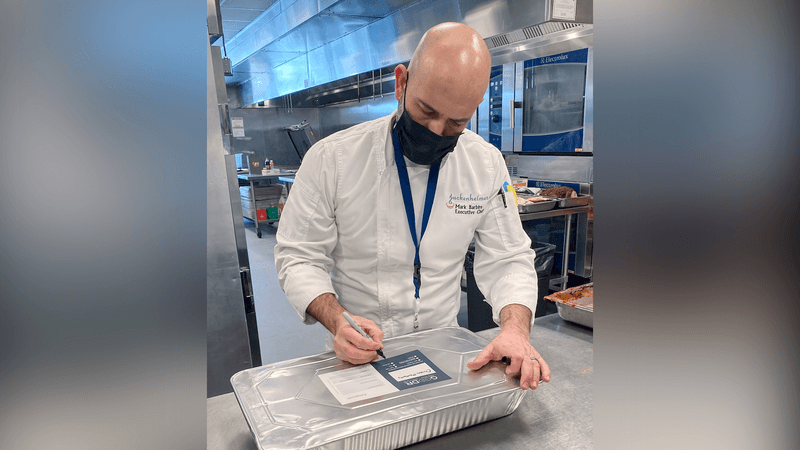2022-03-22
ISS Reduces Hunger, Diverts Surplus Food with New Program

ISS A/S (ISS) has announced the adoption of a new program that reduces community hunger by diverting excess food to local charities. The company’s food services brand, ISS Guckenheimer, has teamed with food distribution and food recovery company Goodr, a certified woman and minority-owned business, to measure, assess, and reroute surplus food from corporate cafeterias and dining venues to people in need.
“We’re extremely happy with the results so far with this program and our relationship with Goodr,” said Paul Fairhead, CEO of ISS Guckenheimer. “We consider this program a triple win: we provide nutritious meals to people who need them; lower greenhouse emissions through diverted food that would otherwise end up in landfills; and reduce costs by analyzing data and making iterative improvements to offerings and purchases.”
“We are proud of the impact our partnership with ISS Guckenheimer is already having on the company and their local community,” said Jasmine Crowe, founder and CEO of Goodr. “We look forward to continuing our work together to reduce ISS Guckenheimer’s food waste and fight hunger with our technology and logistics.”
A primary challenge to businesses operating in the food services industry is creating enough product to meet customer need demand while also minimizing excess production in order to keep costs down and avoid waste. Occupancy fluctuations due to the pandemic have at times made this balance more difficult to achieve. Faced with instances of surplus product, ISS Guckenheimer leverages Goodr technology and the power of national networks and logistics to get food to those who need it most.
Goodr’s technology includes a dashboard with waste tracking metrics for chefs to reduce food cost. Through this dashboard, chefs can track donation trends and adjust prep levels or scale back ordering of specific items as needed. The system also allows food service teams to notice new trends in dining. For example, frequent donations of meat entrees may prompt chefs to increase plant-forward offerings. Goodr’s technology also provides waste diversion rates as well as the social and environmental impact of a company’s Surplus Food Recovery efforts. In 2021, Goodr’s Surplus Food Recovery program served over 480,000 meals and diverted more than 580,000 pounds, across all of its partners.
This program aligns with the company’s recently announced ambitions and strategy for Net Zero Emissions and further supports its mission to help clients minimize their impact on the environment by reducing the use of energy and water, decreasing carbon emissions, and cutting production of waste, including food.